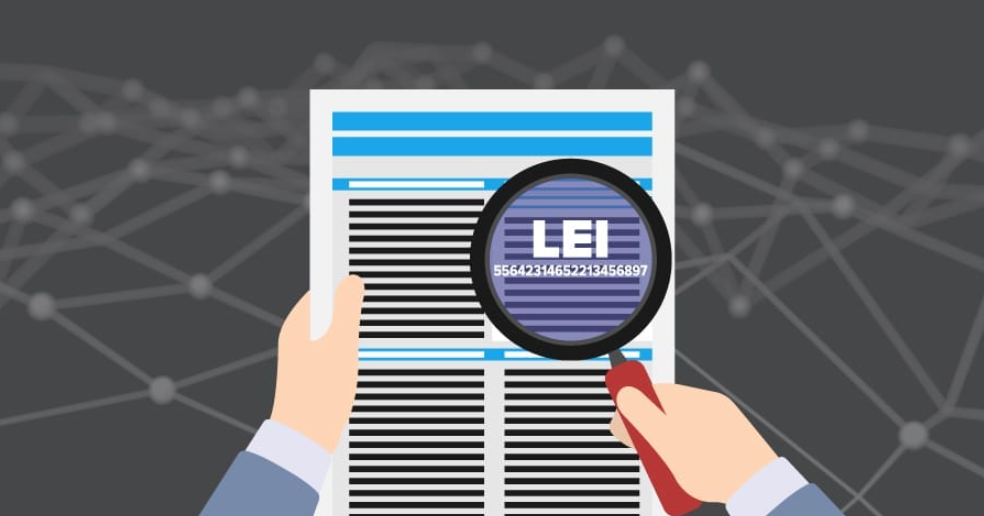
- A Legal Entity Identifier, often known as an LEI, is a code that is exclusive to a certain legal entity, such as a Limited Company, Fund or trust, or organization of any kind. The Legal Entity Identifier (LEI) code is a combination of twenty letters and digits (see the LEI structure here).
- Because numerous entities may have names that are similar to or the same as one another, it is necessary to have a system that allows them to be identified on a worldwide database of entities that can be searched by number rather than by name. Within the framework of the global financial system, many businesses are now required by law to comply with the LEI standard, which is an ISO standard.
- In order to identify market participants on a single, standardized database, the LEI must be assigned to them. This makes factual information about a corporation easily available as well as totally free to use for anyone who is interested.
- The LEI record of a company will include information that is available to the public, such as the firm’s name and address, as well as the location where they are registered and whether or not they are a branch or are controlled by another “parent” company.
- Too far, more than 2 million LEIs have been generated around the world, and the technology is swiftly becoming a global standard in commercial transactions and financial transactions.
- As a global business licensing number, the LEI number is used. The LEI number is used to identify parties that are taking part in financial transactions on a global basis. The application for an LEI code has a fee associated with it, and there is also an annual maintenance fee required to keep the code valid.
- The Legal Entity Identifier, or LEI, is a 20-character alphanumeric identifier that is used to identify parties to financial transactions in a way that is completely unique across the globe. It has been put into place to enhance the quality and precision of financial data reporting systems in order to facilitate improved risk management.

Register your LEI in 3 Steps:
- Login or create a user account-Log into your existing account or create a new user account to apply for LEI.
- To apply, finish filling up the protected online LEI application form.
- Receive your LEI-Local experts validate your information and assign and publish your LEI after it has been validated by the experts.
- The LEI is designed to enable the identification and linking of parties to financial transactions in order to manage counterparty risk. Its goal is to help improve the measuring and monitoring of systemic risk and support more cost-effective compliance with regulatory reporting requirements.

Importance of LEI number:
- A Legal Entity Identifier, often known as an LEI, functions similarly to a world business number in that it can be used to identify a legal entity on a global scale. An LEI ensures the transparency and security of entity identification among financial stakeholders, allowing for the traceability of transactions to be established. Any company that is required to report information in accordance with EMIR must use an LEI.
- In order to be ready to trade stocks, bonds, and other financial instruments, the vast majority of legal entities will need to obtain an LEI number.
- The LEI number requires annual renewal in addition to a registration cost and must be obtained initially by paying the charge.
- Because every entity will have its own distinct identifier on a global scale, this facilitates the prevention of financial crime.
- The assignment of an LEI code is the responsibility of LOU, which stands for Local Operating Units. The Global Legal Entity Identifier Foundation (GLEIF), which publishes all LEI numbers without charging a fee, is the organization that grants accreditation to LOUs. Additionally, the GLEIF is governed by the LEI Regulatory Oversight Committee (ROC) (Global Legal Entity Identifier Foundation).
- GLEIF, which is a non-profit organization, is in charge of coordinating the issuing of LEI numbers. This organization also has the job of preserving the credibility of the global LEI system.
- The LEI Regulatory Oversight Committee (ROC), which is in charge of regulating GLEIF, is made up of representatives from a variety of different financial institutions from all over the world.
- LEI services provide a service in which you only need to plug in your company license number and confirm your data, which is already registered with the appropriate government agencies. Fill out the details regarding the ownership structure, and once this can be done, we’ll make the LEI code application on your behalf. Depending on the circumstances, you should get the LEI code in a few hours or a few days at the very most. This is applicable to the vast majority of situations that do not call for any further information from you.
- It is essential to make certain that the fundamental information concerning the legal entities that are included in the LEI Index has been brought up to date at all times. As a result, the information ought to be brought up to date on an annual basis. This is often considered an LEI number renewal. You can find more information about LEI services here – leiservice.com.

Conclusion
The LEI, also known as the Legal Entity Identifier, is a one-of-a-kind identifier that is composed of 20 characters and can be used to identify the parties involved in financial transactions. More than 2 million LEIs have been manufactured all around the world, and the technology is rapidly evolving into an industry standard that can be applied on a global basis.
In addition to paying the one-time setup price, you will need to pay an annual renewal fee in order to keep your LEI number active. As a direct result of this fact, LEI Service provides the opportunity for multi-year renewals. During the course of these renewals, we will bring all of the official sources that are supported by LEI up to date. Because the legal entity is obligated to provide us with notice of any changes that take place, we are bound to maintain the information included within the GLEIF LEI Index in a manner that is as up to date as is practically practicable. This is because the legal entity is obligated to provide us with notice of any changes that take place.








